23, February 2018
The Anglophone Crisis, Biya’s Youth Day Address and the Generational Question 0
<strong>To extricate himself from this debacle of denial, Biya must face the painful truth about the nation in crisis and be under no illusion that military force can defeat the Anglophone resistance. And if the president sincerely thinks youths should assume the mantle of leadership, why, at 85 and after 35 years in power is he contesting the 2018 presidential election?</strong>
Across the world, it is the practice of leaders to address their fellow citizens by means of national broadcast, wherein they take stock and make visionary statements about the future direction of the country. President Paul Biya’s traditional youth-day address was disappointing for failing to accurately capture the state of the nation. It was obvious the president wanted to paint a rosy picture over an otherwise gloomy state of affairs, and ended up wasting a golden opportunity to honestly engage with Cameroonian youths, whose future is being mortgaged on the altar of empty grand-standing.“In the decades ahead, you will be our country’s leaders, hence the need for you to be up to the task, by acquiring the necessary skills and experience. However, first, you must understand that the “new world” which is unfolding before our very own eyes could be tougher and more unstable than the old one,” Biya noted. No one is impressed by the hackneyed mantra that youths are tomorrow’s leaders, or that they hold the nation’s future. This is trite and sounds like a broken record. The more serious questions to ask are: what quality of youth? Which future? Biya’s claims were so hollow; his diagnosis of the problems facing youths was pedestrian; his proposed solutions were empty platitudes; indicative of leadership dysfunction and apathetic indifference by the man Cameroonians elected as their president. Little surprise the speech was roundly dismissed as empty rhetoric.
It is obvious, Biya doesn’t care about youths and his promises have lost credibility with each youth day address. How can youths who have been excluded from any meaningful participation in the running of public affairs by the greed and primordial interests of the president’s generation, be ready to face the challenges in this overly complicated, globalized world? Since this generation of youths are ill-prepared to be tomorrow’s leaders, on which generation should Cameroonians now depend for their political destiny? Is it the generation that succeeds two failed generations? Is it this generation that has been demoralized, abused, instrumentalised; onto whom has not been bequeathed any values and patriotic sense of duty to the fatherland?
Few will argue that Cameroon is a gerontocracy, where a group of tired old men tottering on the borders of senile decay have taken the country hostage. The four most important personalities of the nation, together, combine for 317 years – Biya (85); Senate President, Niat Njifenji (83); House Speaker, Cavayé Djibril (78); PM Philemon Yang (71). At age 76, Laurent Esso’o has been Minister of Justice, Public Health, Defense, Foreign Affairs, and Secretary General at the presidency and is back as Justice Minister. The cabinet is full of octogenarians and septuagenarians who continue to be recycled into different portfolios. Even if their age is no problem, what about the age of their ideas? In the legislature and judiciary, the median age of the top brass is above the official retirement age of 55 years. Tired old men like Nfon Mukete, Achidi Achu, Enow Tanjong, Mafany Musonge, Philemon Yang and others in their generation, ought to have long quit the stage to become elder statesmen who, in tricky times like these, would be consulted for their wisdom and experience. Recently, Biya recycled another bunch of spent forces, all facing creeping senility; to the Constitutional Council. When will these old people retire?
The other fundamental point about the president’s address is the claim that “the situation in the South-West and North-West Regions is stabilizing.” This is a big, fat lie that fosters apprehension in public consciousness, and raises questions about Biya’s sincerity to address the crisis, beyond mere lip-service. Despite the militarization of Anglophone regions, at least five soldiers were killed in sporadic attacks, a day after Biya spoke – an indication the Anglophone resistance is not about to end just yet. Biya should stop putting a bold face on an appalling situation that has all but passed crisis point. There is no better way to work one’s name into the book of infamy.
Predictably, Biya blamed falling oil prices for the parlous state of the economy. The truth is that the economic trajectory created by low oil prices was compounded by the absence of fiscal buffers. Instead of saving for the proverbial rainy day when oil prices were high, Cameroon actually increased its debt portfolio to finance conspicuous consumption. The national debt has more than tripled since debt relief under the enhanced Heavily Indebted Poor Countries (HIPC) initiative in 2006.Besides, huge contracted, undisbursed external loans of FCFA 3.7 trillion (21% of GDP) have become a drainpipe on the treasury. These loan obligations were signed in 2013 but government’s failure to meet the conditionalities stalled disbursement. Over FCFA 12 billion is wasted annually to pay interest on loans that are idle in foreign banks. According to the IMF, China holds the largest share of Cameroon’s undisbursed loans (36%).
These undisbursed loans hang over the heads of the largely overrated but underachieving economic management team like an albatross. The country is being denied the benefits of counter-cyclical fiscal policy tools of budget and capital spending, needed to reflate the economy; further stifling productivity in real sectors of the economy, like manufacturing. With over 60% of the populace under age 25, and with poverty stagnated at 40%; according to the World Bank, Cameroon is sitting on a power keg, given that the ILO puts youth unemployment at a whopping 75%.The government must diversify the economy and create the enabling environment for the private sector -the engine of economic growth – to attract capital and foreign direct investments and create jobs. The over dependence on dwindling oil revenues and external borrowing that has bloated the national debt is unsustainable. Instead of measures taken to boost job creation, Biya said: “As at 31 December 2017, 473,303 jobs had been identified for youths, exceeding our set target of 400,000.” Whether he was speaking in metaphor, the ludicrous assumption that identifying jobs somehow translates into actual job creation provokes a certain queasiness that betrays Biya and his speech writers as incapable of creative thinking.
With gallant effrontery, Biya parodied US President John Kennedy by admonishing the youths to: “Ask not what your country can do for you; ask what you can do for your country.” Hear Biya: “rather than yielding to the tempting mirage of illegal emigration and undertaking a hazardous and often doomed trip, I invite you to play an active part in our great vision to achieve emergence by 2035. I believe I can safely say that the State has done much in recent years to prepare you for this lofty task.” Such glib talk is a mea culpa expression of incapacitation, and a very grave self-indictment that underlines Biya’s defeatist resignation to the fact that Cameroonian youths will continue to vote with their feet, braving the odds to seek greener pastures abroad because they see no future in a country, captured and taken hostage, by a rapacious, vampire elite that have stolen and amassed enough wealth even for their unborn generations of children.
It does not require special intelligence to recognize Cameroon is ailing. The problem is inextricably tied to poor leadership, linked to a poor recruitment process. No country, after all, can rise above the level of its workforce, especially at the leadership level. In consolidating his personal power, Biya relies on patronage networks of cronies, loyalists and tribesmen. Many youths without connections to these patronage and ethnic-clientelism networks in the system, must bribe their way into professional schools like ENAM, which opens avenues for corruption and rent-seeking. A majority end up frustrated, bitter and disillusioned. The angst and anomie driving the Anglophone resistance are deeply embedded in the generational question. The consequences of excluding youths from the commanding heights of authority in public affairs, is so bad that the best Cameroonian youths are outside the country or outside government. This tragedy is a vicious cycle: tired old men who at one time or the other, contributed to the nation’s downturn continues to be recycled in office giving them the opportunity to continue perpetuating their failure in the affairs of the nation. More often than not, they are clueless, inept and ill-equipped for the enormous responsibility of nation-building. For example, aside his nuisance and entertainment value, what technocratic capacity has Issa Tchiroma in a communication landscape driven by information technology and social media? The nation undoubtedly gets a raw deal when the wrong people get into offices. The result is widespread ineptitude. Little wonder Cameroon’s fortunes have continued to plummet just as she diminishes in stature and integrity.
In a genuine democracy or even any context, there is something absurd in one man ruling a country for 35 years and counting. It just cannot be that there are no other capable hands to continue wherever he stops! As has been apparent in the course of history, with each passing generation, the state of leadership deteriorates in double proportion. Whilst a systemic failure to sacrifice for the nation’s greatness signposts the leadership quotient of Biya and his generation, it should now be obvious that, Biya’s inability to harness the talents and qualities of Cameroonian youths, to help lift his administration to a commanding height of moral regeneration and socio-economic progress, is a regrettable personal failure. This failure has made Ambazonia very appealing to Anglophones, as a great country waiting to happen. Not even an Anglophone president under the present dispensation will alter this dynamic!
<strong>By Ekinneh Valerian Agbaw-Ebai</strong>
<strong>*Ekinneh Agbaw-Ebai is a Public Intellectual and graduate of Harvard University John F. Kennedy School of Government, where he was Managing Editor of the Harvard Journal of African-American Public Policy. A former Research Analyst for Freedom House, he is a Consultant and lives in Boston, USA.
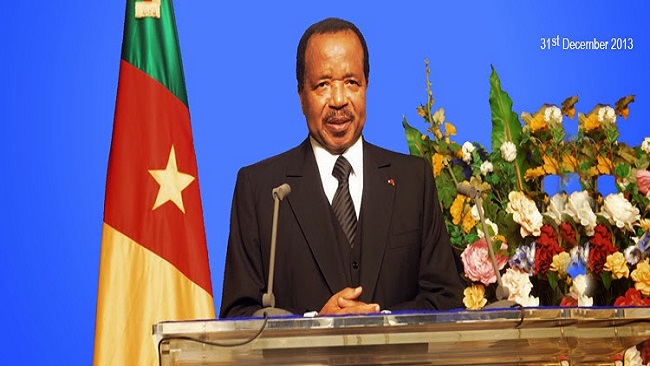
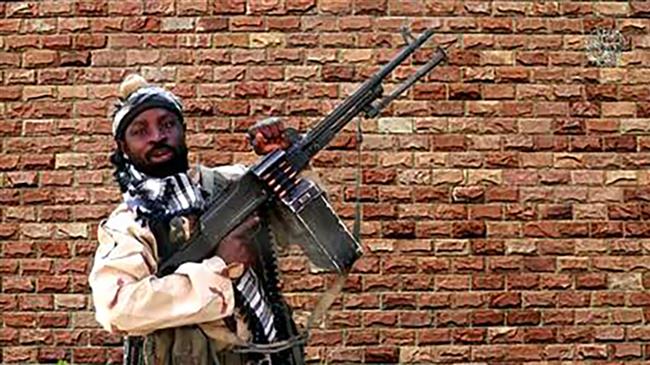
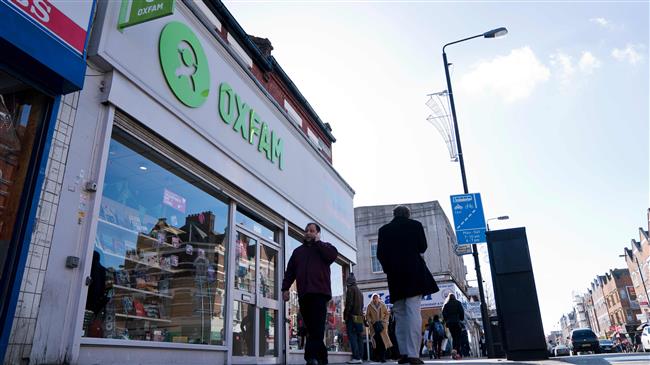

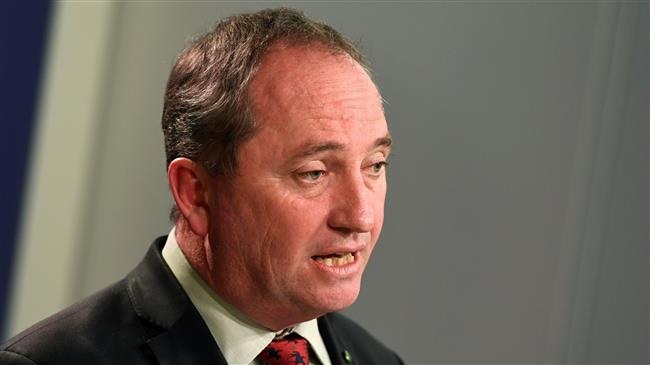

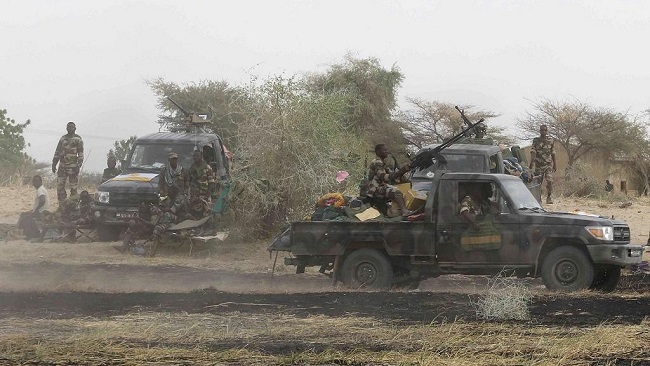
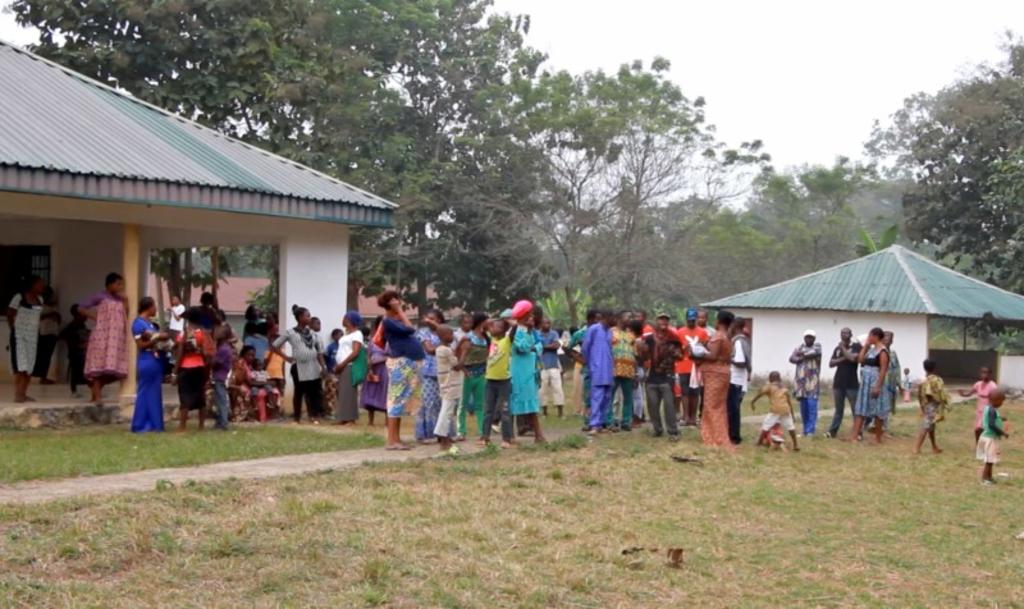

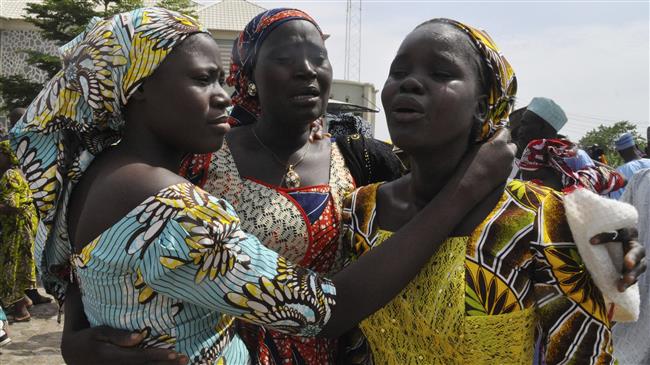

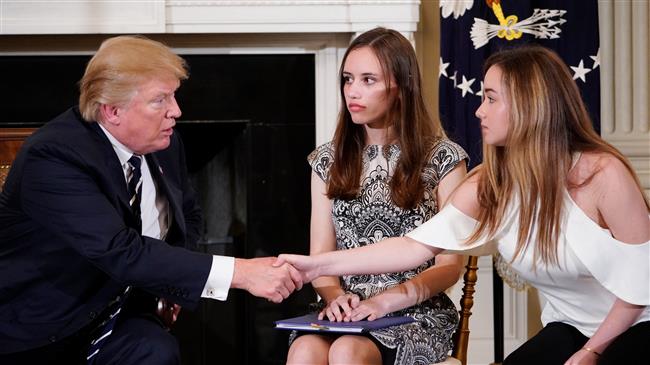












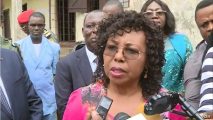

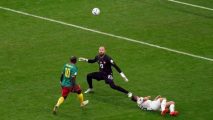




23, February 2018
SDF Congress: Joshua Osih’s coronation is on track 0
As the Congress of the Social Democratic Front (SDF) enters its second day, many analysts and SDF supporters are already agreeing that Joshua Osih is on his way to becoming the SDF’s presidential candidate in the upcoming presidential elections in Cameroon.
Though Barrister Mbah Ndam is also in the race, indicators about his success are trending low, as most delegates agree that it is time for a generational change within the party that almost brought down the ruling CPDM in 1992 presidential elections which, many say, was won by the emblematic SDF Chairman, John Fru Ndi, although Mr. Biya was granted the victory by a supreme court that was mainly composed of his supporters.
Speaking to a delegate who elected anonymity at the Congress Center on Friday, February 23, 2018, our correspondent in Bamenda gathered that almost all the delegates were looking in the same direction.
“We seem to be in for a coronation. Joshua Osih appears to be more popular with the delegates than any other candidate. We trust him and he has what it takes to give the ruling CPDM a good run for its money. Besides, many young Cameroonians want to see new faces in the political arena. Cameroonians are tired of seeing the same old people who have been in the corridors of power for more than five decades. They want change, I mean real change and we of the SDF believe that a younger and fresher face will bring us more votes,” the delegate said.
“We are in good spirit here at the Bamenda Congress Center. We initially thought the congress would not hold here in Bamenda following threats by unknown armed groups. The groups are mad at us because they hold that we are collaborating with the government. But that is not true. We want to bring the Anglophone problem to the National Assembly and if Cameroonians give us a chance at the upcoming elections, we will be able to address this issue. We think federalism will be able to address some of the issues Anglophones have raised. We do not need bloodshed in our country. Anglophones have legitimate grievances and those grievances must be addressed and the SDF is willing and capable of addressing those grievances in a federal system,” the delegate stressed.
He added that “the atmosphere is very conducive with more than 2,500 delegates coming from the ten regions.The elections of NEC members will soon take place while that of the presidential candidate will take place tomorrow.”
Speaking yesterday during the opening session, the SDF Chairman used the occasion to deliver his policy speech. Chairman Fru Ndi said he would not stand for presidential elections,but would hand the baton to a young man who resembled his father. This statement was interpreted by many delegates as implying that he was referring to Mr. Osih who is the youngest of the candidates and whose candidacy has been approved by both Anglophones and Francophones.
A highlight of the event was when Mr. Osih’s campaign materials arrived the congress hall today morning. The posters and calendars caused commotion as all the delegates rushed to have copies. As at the time of producing this report, no photos or campaign material of the other candidates had been seen anywhere close to the Congress Center and this is causing many delegates to hold that the young Osih is heading for a landslide.
It should be recalled that this congress is taking place amid high tension as unknown armed groups in the region had threatened to disrupt the event following criticisms by Mr. Fru Ndi, of the Southern Cameroons struggle for independence.
To ensure that the congress takes place as scheduled, the Yaounde government is providing top security to Mr. Fru Ndi, a situation that has further fueled rumor that he is playing ball with Mr. Biya. Even the location of the event is heavily guarded, as the armed groups are determined to wreak havoc.
It should be recalled that the Biya government that is providing security for the SDF today, was the same government that had maimed and killed many young SDF supporters in 1990 when the political party was launched because the Biya regime felt threatened that multiparty politics could sweep it out of power. It therefore declared the party launch illegal, creating a chaotic situation that resulted in the arrest and detention of many SDF supporters.
Similarly, due to threats, the SDF congress location has been changed as the owners of the previous locations were scared that their property could be burnt down or destroyed. The SDF has been seeking to bring the Southern Cameroons crisis to the floor of the National Assembly, but the ruling CPDM has been blocking all efforts at seeking institutional solutions to the Anglophone crisis.
The SDF has taken the threats of the armed groups seriously. It should be recalled that last week, the Batibo Divisional Officer was kidnapped and taken into a thick forest and attempts by government officials to locate him have been futile. Not even his body has been located even when rumor had swirled that he had been killed. For now, it is believed that he is being held by Anglophone separatists who are seeking to restore their independence from the Republic of Cameroon.
It is worth mentioning that the SDF is known to be in favor of a federal system in Cameroon and the party chairman as well as other officials have always chided the government for mismanaging a problem that has metamorphosed into a crisis that has already consumed more than 500 lives, including both civilians and soldiers.
Despite the increasing tension, many political analysts hold that the SDF congress is necessary, as it will enable the party to choose its candidate for this year’s presidential election. Many Cameroonians – both Francophones and Anglophones – hold that a new political class must emerge, as the old one has been a huge disappointment to the people.
For now, there are two outstanding candidates seeking the party’s top job. Joshua Osih and Barrister Mbah Ndam. So far, echoes from the congress give to understand that it is a coronation for Mr. Osih who is very much respected in the country.
Mr. Joshua Osih is smart, bilingual, and patriotic, and he understands the people’s plight. After serving for long as his party’s vice-president and parliamentarian, Mr. Osih believes that this is the right time to help pull the country out of the political mess created by the Biya government.
His possible coronation will come as a relief to many young Cameroonians who clearly hold that it is time to walk away from the ineffective and inefficient gerontocracy that has brought pain and death to many Cameroonians. Many young Cameroonians hold that the country needs younger hands to transform the country’s economic and political landscape and Joshua Osih has a safe pair of hands.
It is also widely believed that his understanding of both Francophone and Anglophone cultures makes him the ideal candidate for the post of president in a country that might implode if the right person does not step in. His moderate stance on many issues has earned him the respect of the entire nation.
Joshua Osih’s time has come. He is being considered as the comprise candidate even by Anglophones who have clearly demonstrated their frustration with the Yaounde government. Cameroon needs to heal and only someone with Joshua Osih’s temperament and charisma will be able to help the country walk away from its ugly past.
By Fosuh Tamajung and Betek Kingsley in Bamenda, with contributions from Soter Agbaw-Ebai in the United Kingdom.